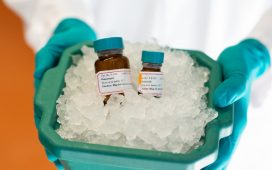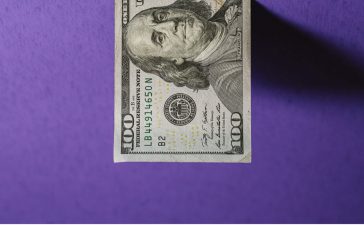Researchers from China are to be allowed access to half a million UK GP records despite western intelligence agencies’ fears about the authoritarian regime amassing health data, the Guardian can reveal.
Preparations are under way to transfer the records to UK Biobank, a research hub that holds detailed medical information donated by 500,000 volunteers. One of the world’s largest troves of health data, the facility makes its information available to universities, scientific institutes and private companies. A Guardian analysis shows one in five successful applications for access come from China.
For the past year, health officials had been assessing whether extra safeguards were needed for patient records when added to the genomes, tissue samples and questionnaire responses held by UK Biobank. Personal details such as names and dates of birth are stripped from UK Biobank data before it is shared but experts say that in some cases individuals can still be identified.
MI5, the UK Security Service, has warned that Chinese organisations and individuals granted access to UK data can be ordered by Chinese intelligence agencies “to carry out work on their behalf”. But UK Biobank told the Guardian that the NHS unit responsible for health data had in recent weeks cleared it to grant Chinese researchers access to GP records.
As Keir Starmer’s ministers court Beijing in search of economic growth, the decision avoids crossing a rising superpower that has made biotech prowess a priority. UK-China relations already face tests over the fate of a Chinese-owned steel plant in Scunthorpe and plans for new rules on foreign interference campaigns.
“Security and privacy considerations are always taken into account when UK health data is used to drive forward our understanding of diseases and advance scientific research,” a government spokesperson said. Health data was “only shared with legitimate researchers”, they added.
Chi Onwurah, a Labour MP who chairs parliament’s science and technology committee, said: “UK Biobank is an enormous success and global medical research is all the better for it.” But she added: “We need a government-wide strategy that gives people confidence that they have control of their data, that their data is only ever shared securely and responsibly, and that reflects the realities of geopolitics and the potential for bad actors to use our data for ill.”
Approving access to patient records
Of the 1,375 successful applications for access to UK Biobank data, 265 came from China, or almost 20%, second only to the US, according to a Guardian analysis of its published records. Chinese scientists have used UK Biobank data to understand the effects of air pollution and to spot biological markers that could predict dementia.
Last year, UK Biobank approved access for a research project on ageing by a unit of the Chinese genetics company BGI. The US, by contrast, has blacklisted BGI subsidiaries, barring Americans from exporting to them.
Joe Biden’s government justified the restrictions in 2023, saying it had information indicating that BGI units’ “collection and analysis of genetic data poses a significant risk of contributing to monitoring and surveillance by the government of China, which has been utilised in the repression of ethnic minorities in China”. It also claimed “the actions of these entities concerning the collection and analysis of genetic data present a significant risk of diversion to China’s military programs”.
These were “unsubstantiated allegations”, a BGI representative said. “We have never undertaken genetic surveillance of anybody. BGI does not engage in unethical practices and does not provide gene technology for surveillance. BGI does not condone and would never be involved in any human rights abuses.” The company dismissed claims the military could access data, saying its research “is undertaken for civilian and scientific purposes only”.
A UK Biobank representative said it was “continually in dialogue” with MI5 and other state agencies about the use of its data, including by BGI.
Despite objections from some GPs, in October Wes Streeting, the health secretary, gave instructions to press ahead with the transfer of patient records for consenting volunteers to UK Biobank and other research hubs.
“Access will only be for countries approved by NHS England,” Michael Chapman, a senior NHS official, told UK Biobank’s conference in December, adding that approval would be based on “security considerations” and countries’ data protection.
NHS England, the body that manages the health service and oversees the use of health data, has in recent weeks audited UK Biobank’s processes for sharing data internationally, including how it assesses applications from China, a representative of the research hub said. UK Biobank passed the audit, the representative said, so Chinese researchers would be able to apply for access to the GP records.
NHS England said: “Any approval of access to personal data from overseas territories requires data recipients to comply with their responsibilities” under UK data law “and is kept under review if circumstances change”.
China is ‘developing the world’s largest bio database’
Data troves such as UK Biobank “were set up to encourage research worldwide”, says a leaked May 2024 NHS England presentation on policing access to GP records, “but the global picture has since changed”.
Yves Moreau, a geneticist who has worked on projects using data from UK Biobank and praises it as a “world class” resource, said China’s rulers “regard genomic data and other health data as strategic”. He said it was “reasonable to worry about China vacuuming such data from around the world to strengthen its biotech sector”.
Beyond commercial advantages, intelligence sources say health data can be useful in espionage if anonymisation can be broken. Experts say it may be possible to match public information about an individual’s medical treatment with anonymised patient records to identify who they refer to. UK Biobank’s representative said it had “no evidence of anyone being identified”.
After China adopted new legislation in 2017 to enforce cooperation with the regime’s spies, MI5 warned custodians of British personal data that the national intelligence law “may affect the level of control you have over your information and assets as you engage with Chinese individuals and organisations, especially if you work in an area that is of interest to the Chinese state”.
China is “developing the world’s largest bio database”, Edward You, then a top US intelligence officer specialising in new technologies, said in 2021. “Once they have access to your genetic data, it’s not something you can change like a pin code.”
Privacy campaigners at medConfidential asked UK Biobank last year “whether Biobank continues to send British citizens’ genetic and (NHS) patient data to China or other ‘hostile states’.” They added: “No one should be satisfied that there is still no clarity on exactly what patient data Biobank has disseminated to what researchers where, despite this being a constant question for multiple years.”
Until last year, UK Biobank allowed researchers to take copies of its data. Recipients agreed to destroy it once their projects were finished but there was no way to ensure they did. In October, the Guardian revealed that a fringe group promoting racist pseudoscience claimed to have access to UK Biobank data. UK Biobank has now switched to a system where researchers access data within its own platform. Its representative said access to GP records would be through this platform only.
Prof Sir Rory Collins, UK Biobank’s chief executive, said: “All our volunteers have given explicit consent for researchers to study their de-identified health data, and many have emphasised the importance of their GP data being analysed.”










